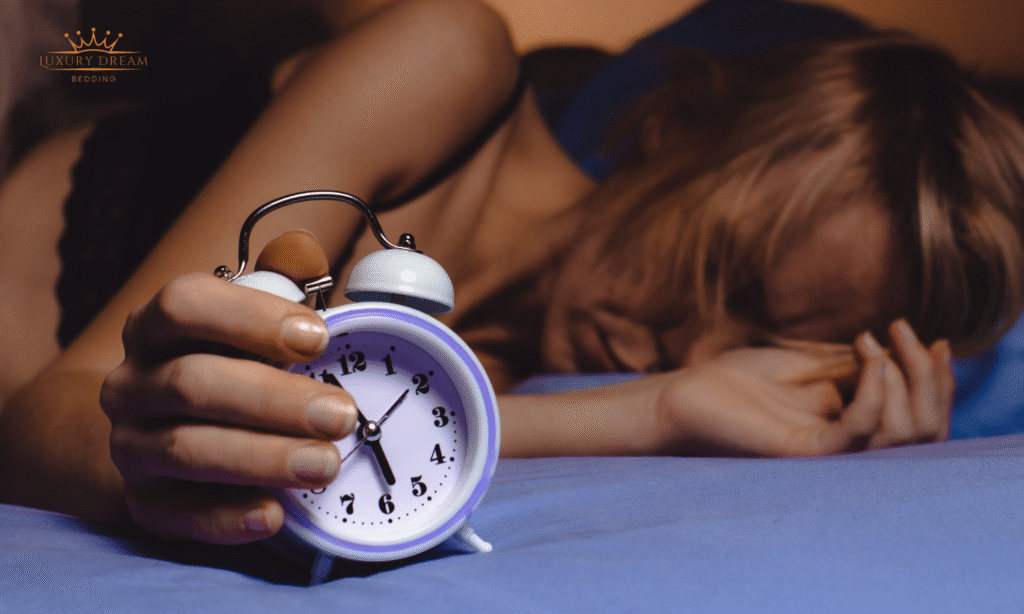Have you ever woken up after a restless night, stepping into a new day with a clouded mind and a sluggish body, even though your responsibilities still demand sharpness and resilience? For those who constantly shoulder great responsibilities, personal time, especially sleep is often overlooked. But behind every sleepless night lies a series of silent reactions within the body: from memory impairment and hormonal imbalance to emotional depletion.
Here are 10 common consequences of sleep deprivation that affect your physical and mental health.
1. Impaired cognitive function and memory loss

A study from Harvard University highlights that sleep plays a crucial role in memory consolidation and information processing (Harvard Medical School, 2021). When you’re sleep-deprived, your brain lacks the time it needs to store memories properly, leading to reduced concentration, poor logical thinking, and impaired decision-making abilities.
2. Increased risk of cardiovascular disease
Sleep deprivation is closely linked to cardiovascular problems such as hypertension, heart attacks, and strokes. According to the U.S. Centers for Disease Control and Prevention (CDC), individuals who sleep less than six hours per night have up to a 48% higher risk of heart disease than those who get adequate rest. Quality sleep helps regulate heart rate and blood pressure, supporting the cardiovascular system’s recovery after a stressful day.
3. Weakened immune system

Our bodies produce cytokines, a type of protein that fights inflammation and infection during sleep. Lack of sleep disrupts this process, weakening the immune response. Research from Mayo Clinic shows that people who don’t get 7-9 hours of sleep a night are more prone to colds, flu, and other infections.
4. Emotional instability and higher risk of depression
There’s a strong two-way link between sleep and mental health. Sleep-deprived individuals are more likely to experience anxiety, irritability, and depression. According to the National Sleep Foundation, prolonged sleep deprivation disrupts the amygdala, the part of the brain responsible for emotional regulation, leading to mood swings and increased negativity.
5. Premature aging and skin deterioration

Skin cell regeneration mainly occurs at night. When sleep is lacking, collagen production, a protein that keeps skin firm and elastic, slows down. As a result, wrinkles, dark circles, and dull skin become more prominent.
6. Metabolic disruption and increased obesity risk
Sleep directly affects the balance of two key hunger-regulating hormones: ghrelin and leptin. Insufficient sleep increases ghrelin (which stimulates appetite) and decreases leptin (which signals satiety), leading to overeating and weight gain. A study from the University of Chicago found that those who sleep less than five hours a night are 55% more likely to become obese.
7. Reduced libido and hormonal imbalance

Sleep plays an essential role in regulating hormones, including testosterone—the hormone influencing libido and reproductive health in both men and women. According to the Journal of the American Medical Association (JAMA), men who sleep poorly can have testosterone levels up to 15% lower, resulting in fatigue, reduced libido, and even erectile dysfunction.
8. Lower productivity and creativity
Insufficient sleep hinders creative thinking and problem-solving skills. That’s why many high-performing CEOs like Jeff Bezos and Arianna Huffington advocate for the importance of sleep in achieving personal success. A full night’s rest not only restores energy but also expands mental clarity and adaptability to challenges.
9. Higher risk of accidents

Lack of sleep slows reflexes, impairs vision, and reduces situational awareness. It is a leading cause of both traffic and workplace accidents. According to the U.S. National Highway Traffic Safety Administration (NHTSA), drowsy driving is responsible for over 90,000 car crashes each year, a statistic too serious to ignore.
10. Shortened lifespan
A University of Warwick study involving over one million participants found that people who sleep fewer than six hours per night face a 12% higher risk of early death. Sleep is not just a passive state, it is the body’s most profound recovery mechanism, essential to the function of nearly every major organ system.
In today’s fast-paced world, sleep deprivation is no longer a badge of honor, it’s a warning sign that your health demands attention. A quality mattress, an ideal sleeping environment, and a consistent routine are the foundational pillars that help you restore energy, maintain peak performance, and truly live each moment to the fullest.
